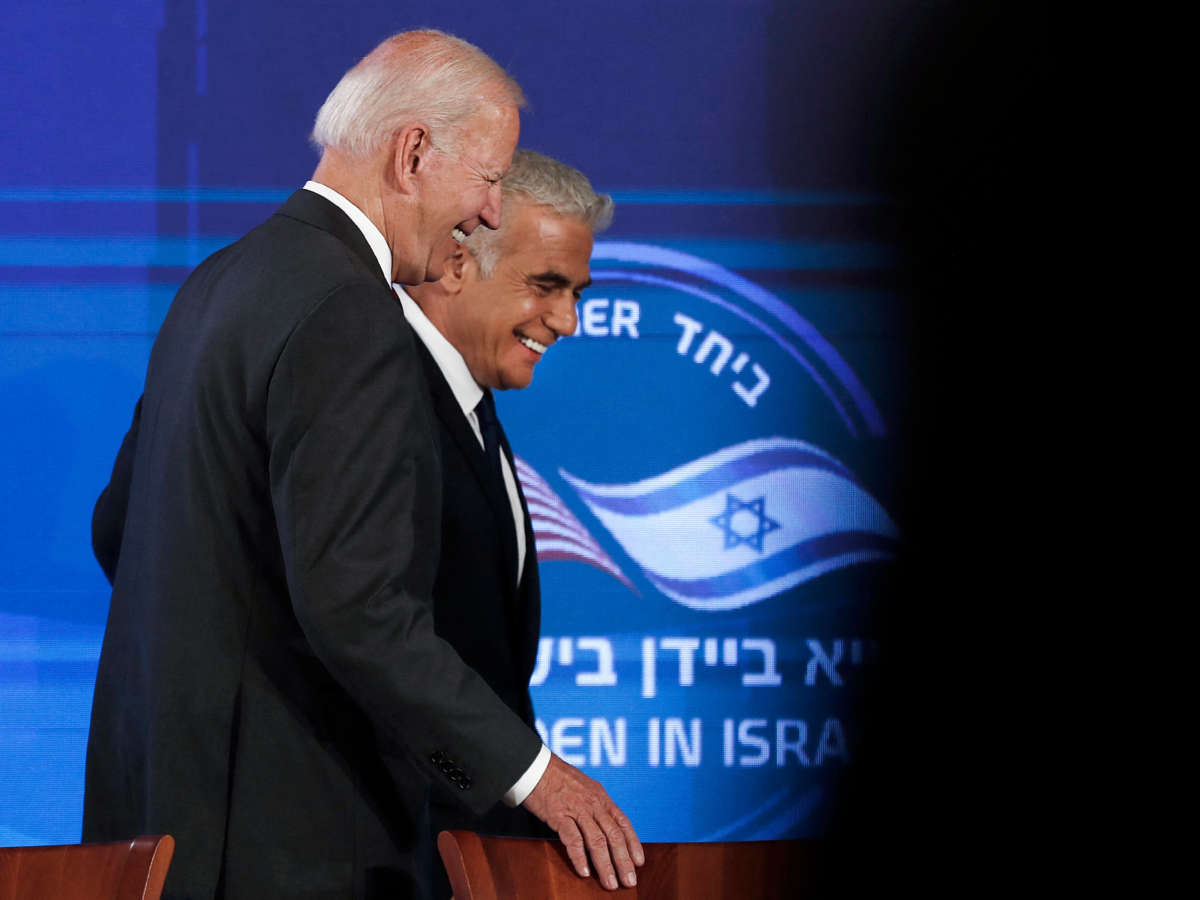Biden administration officials have reportedly been attempting to assure their Israeli counterparts that a U.S. return to the Iran nuclear accord is not “imminent,” despite apparent signs of progress toward a final agreement in recent days.
Axios’s Barak Ravid reported over the weekend the Biden administration has told Israel that it “hasn’t agreed to new concessions with Iran” and that the U.S., European nations, and Iran are not on the verge of a deal, even after Tehran engaged with and offered its response to what E.U. leaders characterized as a “final” offer.
The U.S. has yet to formally respond to the E.U. text or Iran’s written reply.
The nuclear talks, which have proceeded haltingly for months, are aimed at bringing the U.S. back into compliance with an accord that former President Donald Trump violated in 2018, escalating tensions with Iran and risking all-out war.
“A deal might be closer than it was two weeks ago but the outcome remains uncertain as some gaps remain. In any case, it doesn’t seem to be imminent,” an unnamed U.S. official told Axios, offering a description of the message that Biden administration officials have conveyed to Israel.
While some Israeli officials have expressed support for a revived deal during internal discussions, the Israeli government has publicly opposed any return to the Iran nuclear accord and threatened to attack Iran in a purported attempt to stop the country from obtaining a nuclear weapon. Iran insists it is not trying to build a nuke.
In the U.S. Congress, Republicans and some war-hawk Democrats have voiced opposition to reviving the nuclear accord, a potentially significant obstacle in the way of cementing any eventual deal.
A final accord would involve the U.S. lifting at least some of the sanctions that have hindered Iran’s coronavirus response and badly damaged its economy. In exchange, major constraints would be placed on Iran’s nuclear activity.
On Monday, Iran accused the U.S. of stalling progress toward an agreement, with a spokesperson for Iran’s Foreign Ministry saying that “the Americans are procrastinating and there is inaction from the European sides.”
#Iran’s FM spox: we’re witnessing procrastination from the American side as they have yet to officially hand in their response to the EU.. we acted in time and showed we’re acting responsibly.. there’s been relatively good progress but everything must be agreed. #JCPOA pic.twitter.com/tMjFWc0uil
— Maziar Motamedi (@MotamediMaziar) August 22, 2022
Biden spoke to French President Emmanuel Macron, German Chancellor Olaf Scholz, and British Prime Minister Boris Johnson on Sunday, a conversation that touched on “joint efforts to deter and constrain Iran’s destabilizing regional activities,” according to a White House readout of the call.
Middle East analyst Sina Toossi wrote on Twitter Sunday that he hopes the European leaders “pressed Biden to revive the Iran deal.”
“The E3 leaders talking directly to Biden on Iran — which is a rare act — seems to indicate that Washington’s initial response to the Iranian proposal last week is not positive,” Toossi added. “Europe stands to play a decisive role in convincing Biden to not lose this opportunity for a deal.”


